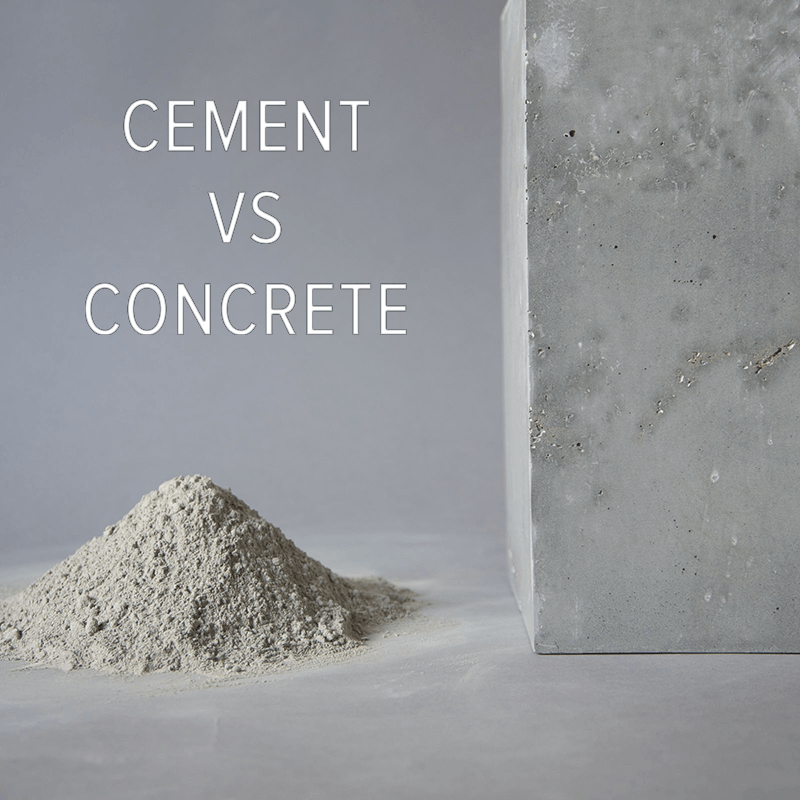When it comes to construction and building materials, the terms "concrete" and "cement" are often used interchangeably. However, there is a distinct difference between the two. Understanding this difference is essential for anyone involved in construction or interested in learning more about these materials. In this blog post, we will delve into the dissimilarities between concrete and cement and shed light on their respective roles in the construction industry.
- What is Cement?
Cement is a crucial ingredient in the production of concrete. It is a fine powder obtained by grinding together various minerals, including limestone, clay, and shale, at high temperatures. Cement acts as a binding agent when mixed with water and other materials, forming a paste-like substance that hardens over time. This process is known as hydration.
- What is Concrete?
Concrete, on the other hand, is a composite material made up of cement, aggregates (such as sand and gravel), water, and sometimes additional additives. It is created by combining cement with these aggregates in specific proportions. The aggregates provide strength and bulk to the mixture, while the cement acts as the binding agent that holds everything together.
- The Role of Cement in Concrete:
Cement plays a fundamental role in the formation of concrete. When water is added to cement, a chemical reaction called hydration occurs. This reaction causes the cement particles to bind with the aggregates, forming a solid and durable structure. The strength, durability, and other properties of the resulting concrete depend on the quality and composition of the cement used.
- The Distinction between Cement and Concrete:
To summarize, cement is a key component of concrete, but it is not concrete itself. Cement is a powdered material, while concrete is a mixture formed by combining cement, aggregates, water, and additives. Think of cement as the "glue" that holds the concrete together.
- Common Misconceptions:
Due to the widespread use of the terms "concrete" and "cement" interchangeably, there are a few common misconceptions. Some people refer to concrete as "cement," which is technically incorrect. Understanding the distinction helps avoid confusion and promotes accurate communication within the construction industry.
- Other Applications of Cement:
While cement is primarily used in the production of concrete, it also has other applications. It is utilized in the construction of masonry structures, such as brickwork, stucco, and mortar. Additionally, cement is employed in the creation of grouts, which are used to fill gaps and secure tiles or stones in place.
Cement and concrete are not the same thing. Cement is a binding agent, while concrete is a composite material that incorporates cement, aggregates, water, and additives. Cement is an essential ingredient in the production of concrete and plays a vital role in its strength and durability. Understanding the distinction between these two terms is crucial for anyone involved in the construction industry to ensure accurate communication and proper usage of materials.










